Tennis: Australian Open changes 2015 heat policy
- Published
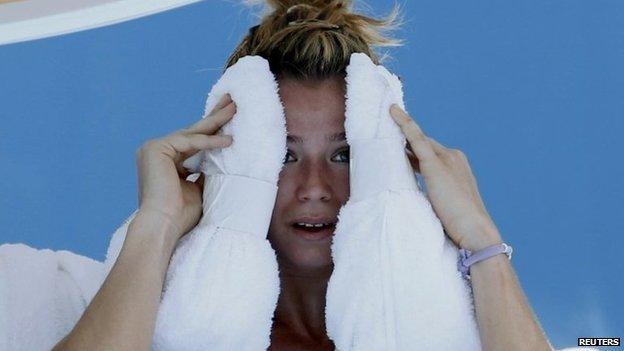
Some matches were halted during the 2014 Australian Open after three consecutive days of temperatures over 40C
Organisers of the Australian Open have changed their extreme heat policy ahead of the 2015 tennis tournament.
Director Craig Tiley said a roof had been added to a third court, and the heat policy had been updated to "ensure conditions are fair for all players".
Temperatures soared above 40C during the 2014 tournament, causing players to faint or suffer from heatstroke.
Organisers were criticised for not suspending matches, with some players describing conditions as "dangerous".
The extreme heat policy is implemented at the referee's discretion. Once the policy is introduced, play can be suspended at the end of the current set in each match.

Analysis: Wendy Frew, BBC Australia Editor
Thanks to climate change, much of Australia will be subjected to longer, hotter and more regular spells of extremely hot weather, say climate scientists.
To cope, Australian industry needs to start "heat-proofing" its operations and sporting authorities need to rethink when and for how long competitions are played outside, says Elizabeth Hanna, president of health sector organisation, the Climate and Heath Alliance, and a researcher at the Australian National University.
It also raises questions about the kinds of houses Australians live in, says Ms Hanna, who is in the midst of a four-year project funded by the National Health and Medical Research Council that is measuring how high temperatures can rise before workers and productivity are affected.

In a statement, external on the Australian Open website, Mr Tiley said: "The decision on implementing the heat policy will take into account the forecast once the ambient temperature exceeds 40C, and the Wet Bulb Global Temperature (WBGT) reading exceeds 32.5.
"When conditions exceed these levels the referee is taking into account the forecast and state of play when making his discretionary call."
The WBGT reading takes into account humidity and wind direction as well as heat.
"The other major difference from previous years is that matches currently in progress will continue until the end of an even number games in that set or completion of tie break," the statement added.
"At the completion of the even number of games in that set or completion of tie break, play will be suspended."
Under previous guidelines, there was no set temperature to trigger the extreme heat policy, with the decision left entirely to referee's discretion.
This led to criticism during the January 2014 tournament that the policy was not implemented transparently, with players complaining of "inhumane" conditions.
Australia has just experienced its hottest month and hottest spring on record.
- Published1 December 2014
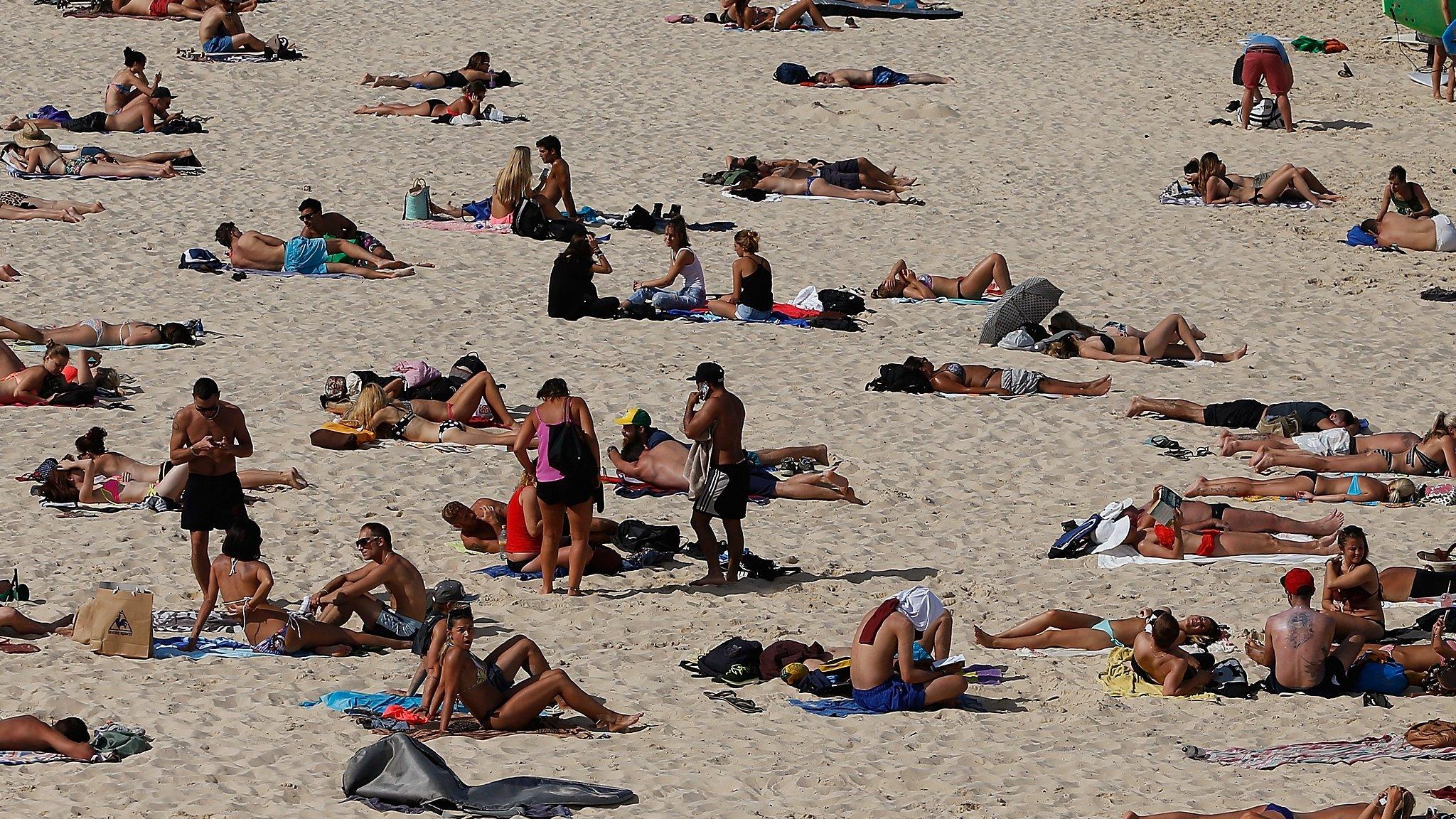
- Published30 November 2014
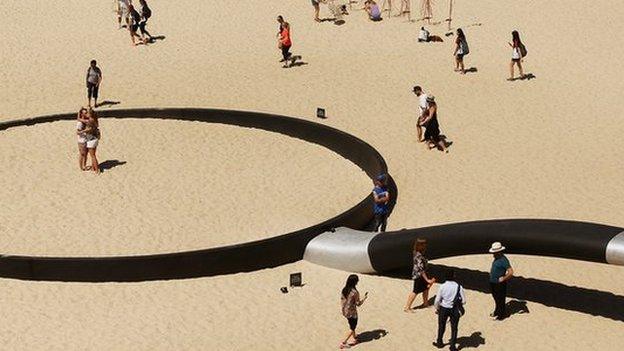
- Attribution
- Published16 January 2014
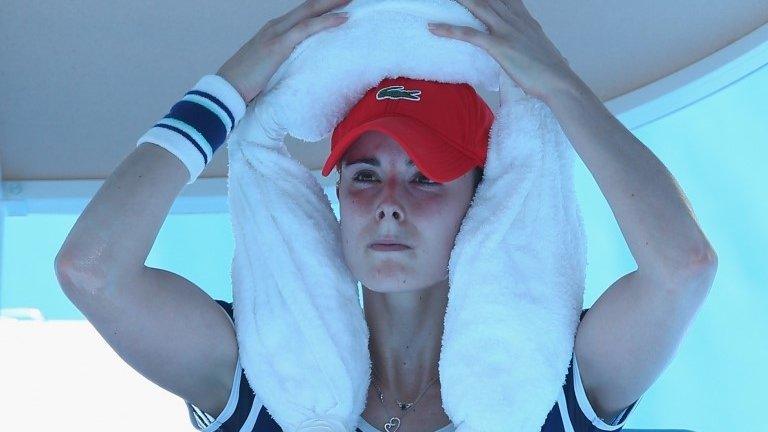
- Published16 January 2014
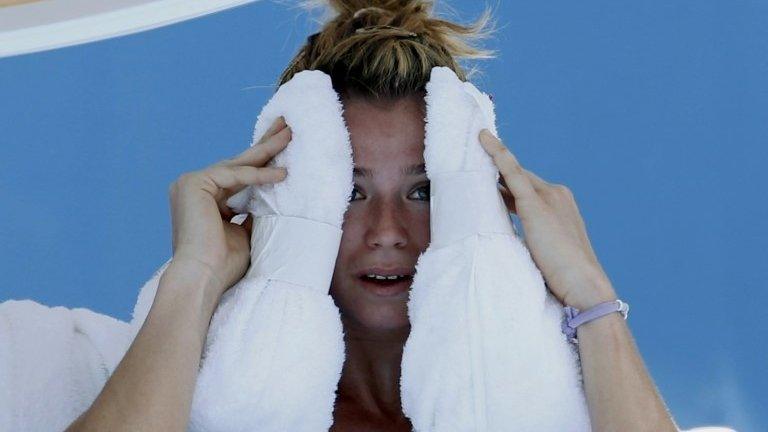
- Attribution
- Published16 January 2014